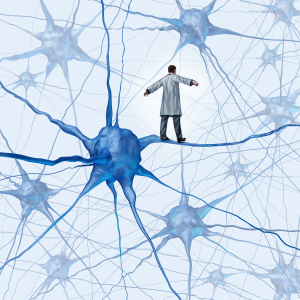Jesse Inchauspe tackles the science behind sugar cravings. Learn practical hacks to control cravings and why breakfast is key.
Jesse Inchauspe tackles the science behind sugar cravings. Learn practical hacks to control cravings and why breakfast is key.
Eating disorders affect an estimated 5 to 10 percent of the population and are generally thought to be a psychological disorder. However, new research from France shows gut bacteria can also play a role in causing eating disorders. The study showed eating disorders developed in mice who had an immune reaction to a protein made by gut bacteria. Basically they reacted to these proteins as if they had an allergy or sensitivity to them. The protein made by the gut bacteria is very similar in structure to a satiety hormone called alpha-Melanocyte-stimulating hormone (a-MSH). When the immune system reacts to the protein it reacts to the a-MSH too because they are so similar. This reaction causes the immune system to attack a-MSH, which regulates feeding, energy usage, and anxiety.
When a pathogen, such as infectious bacteria, is similar to a tissue or hormone in the body and the immune system can’t distinguish between the two and attacks both, this is called cross-reactivity. It is a very common cause of autoimmune reactions. For instance, gluten, the protein in wheat, cross-reacts with tissue in the brain. Many people with gluten sensitivity develop neurological disorders because when the immune system attacks ingested gluten it attacks the brain too, confusing it with gluten. The same holds true for dairy and some cases of type 1 diabetes, and other foods and autoimmune diseases. This study opens the door to the possibility that eating disorders may have an immune component at their root driving the psychological disorder.
Although serious eating disorders are complex and require intensive therapy, certain nutritional strategies can help you obtain a more balanced approach to eating and food. The key is to follow a diet that fosters healthy brain chemistry.
Eliminate processed carbohydrates from your diet as they are addictive and skew brain chemistry in the way other addictive substances do. This can foster an unhealthy relationship with food.
Eating to keep blood sugar stable is a vital component to curbing cravings, obsessions with food, and a constant feeling of hunger. Avoid sweet, starchy foods, coffee drinks and energy drinks, going too long without eating, and relying on coffee for breakfast. Many people need to eat small, protein-dense meals frequently in the beginning to stabilize blood sugar.
It’s also important to base your diet on plenty of vegetables — research shows a plant-based diet affects the composition of gut bacteria and affects energy usage and fat storage in a way that promotes being slender naturally — without having to obsess over it.
Supporting your neurotransmitters, brain chemicals that affect mood and brain function, can also help you stabilize your approach to eating. Your brain may need serotonin or dopamine support. Serotonin is important to feel joy and ward off depression, while dopamine support may be helpful to feel motivation and ward off cravings. Both have been shown to play a role in eating disorders.
Ask my office for more advice on how to support a healthier approach to balanced, obsession-free eating.
Post in it’s entirety, is compliments of www.drflannery.com/
By Dr Flannery 
The digestive tract is home to more than 100 trillion microorganisms. That’s ten times the number of cells in the human body! Although humans can survive without these tiny guests, they perform a host of useful functions, such as fermenting unused food, preventing growth of harmful bacteria, producing vitamins, and training the immune system. But did you know the bacteria in your gut can affect your brain, too? In fact, recent research on the gut has found some interesting links between the gut microbiome – the complex and unique microbiological community within the gut –- and autistic behavior in children.
As parents well know, children with autism have a high rate of problems with gastrointestinal (GI) disorders. The resulting discomfort can worsen behaviors and interfere with their ability to participate in, and benefit from, activities of daily life, education, and therapeutic activities.
On a related note, it has been known for some time that children with autism tend to have abnormal and less diverse communities of gut bacteria than children without autism. Recent research on children with autism has revealed these interesting facts:
Their intestinal cells show abnormalities in how they break down and transport carbohydrates, which can affect the amount and type of nutrients these cells provide to intestinal bacteria. This in turn may alter the makeup of the intestine’s normal community of digestive bacteria — with ill result.
Their intestines are home to abnormal amounts of certain digestive bacteria that contribute to digestive problems, intestinal inflammation, and more severe autism symptoms.
There are lower levels of three important gut bacteria; Prevotella, Coprococcus, and Veillonellaceae.
Theory has it that the community of bacteria in the gut affects the immune system, which then sends messages to the brain. This may explain why parents of children with autism report that special diets and probiotics (nutritional supplements containing “good” bacteria) improve their children’s digestion as well as their behavior.
The Gut-to-Brain Connection
The most recent research on the connection between the gut and autism explores how the gut microbiome affects the autistic brain. Researchers at Arizona State University found that concentrations of metabolites (byproducts) from seven specific bacteria are more prevalent in autistic children’s fecal samples. According to study author Dae-Wook Kang, “Most of the seven metabolites could play a role in the brain … We suspect that gut microbes may … affect gut-to-brain communication and/or alter brain function.”
Of the seven metabolites that were noticed, three warrant special note for their apparent relation to brain function, thereby behavior:
Homovanillate was present at lower levels in children with autism; it is normally produced when dopamine (an important brain neurotransmitter involved in many aspects of mood and behavior) is broken down.
N,N-dimethylglycine was found at lower levels; it has been used before to decrease autism symptoms.
The ratio of glutamine to glutamate was higher: these are metabolized into GABA, a vital inhibitory neurotransmitter associated with relaxation. An imbalance between glutamate and GABA transmission has been associated with autistic-spectrum type behaviors such as hyper-excitation.
These connections offer insight into possible link between the gut biome and the behaviors seen in autistic children. Researchers say they would like to conduct a clinical study using fecal transplants from healthy donors to see if normalizing an individual’s community of gut bacteria would reduce autism symptoms.
Although the study was small, it adds to the growing body of research that tells us the gut is closely tied to the brain.